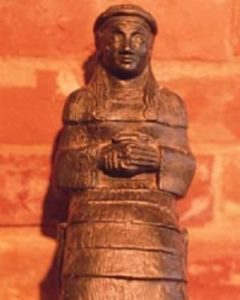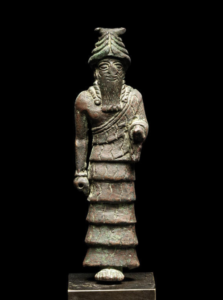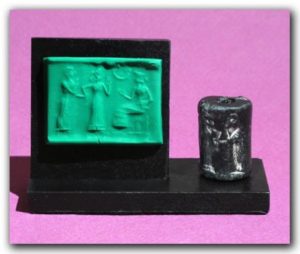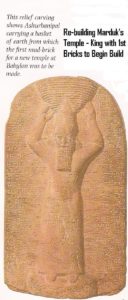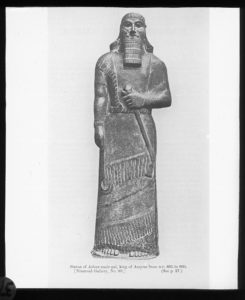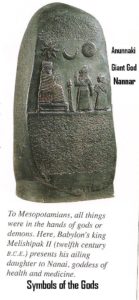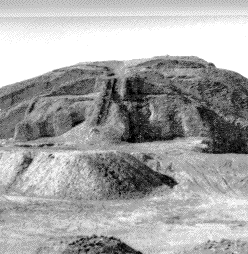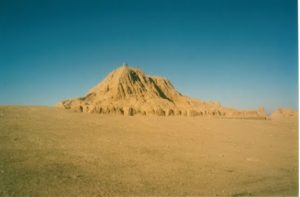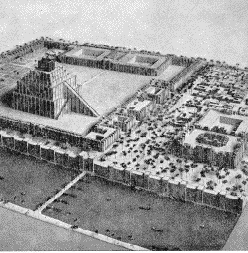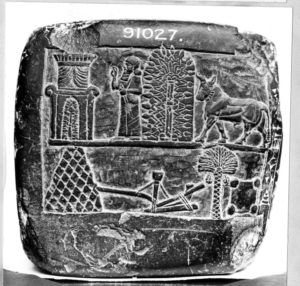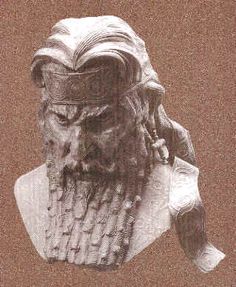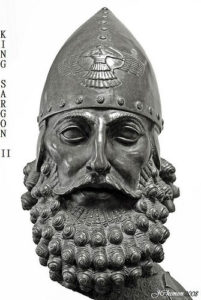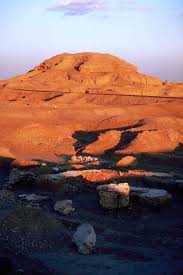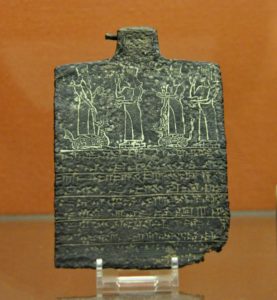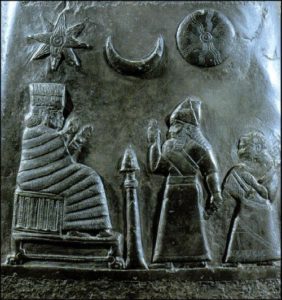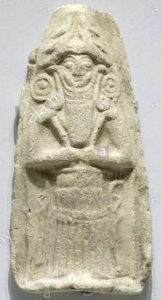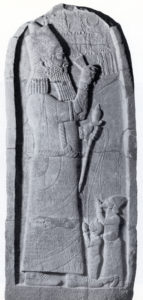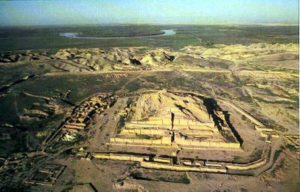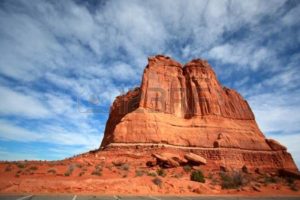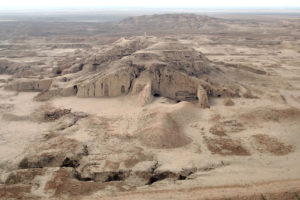(Texts: All Artifacts, Color Coding, & Writings in Bold Type With Italics Inside Parenthesis, are Added by Editor R. Brown, not the Authors, Translators, or Publishers!)
(gods in blue … mixed-breed demigods in teal)
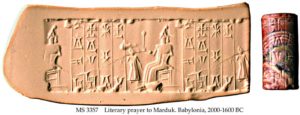 (prayer to Marduk for Babylonian mixed-breed king)
(prayer to Marduk for Babylonian mixed-breed king)
Neriglissar, king of Babylon, pious prince, the favorite of the god Marduk,
the humble (and) submissive one who reveres the lord of lords, the wise (and) pious one,
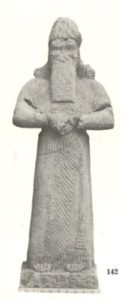
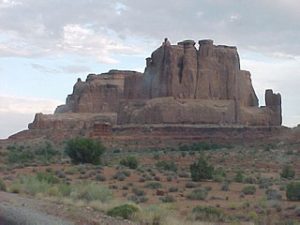 (Nabu; Nabu’s ziggurat residence Ezida)
(Nabu; Nabu’s ziggurat residence Ezida)
the one who is assiduous towards the shrines of the god Nabû — his lord —
the ruler who provides, the one who brings large gifts to Esagil and Ezida,
the one who copiously supplies sattukku-offerings
(and) ensures that their purification rites are carried out correctly,
son of Bēl-šum-iškun — wise prince — the perfect young man,
the one who ensures the protection of Esagil and Babylon,
the one who protects the approach to the country like a strong wall, I.
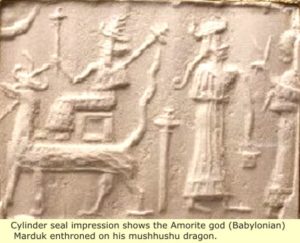 (Marduk acting as if he is Supreme Lord, instead of Enlil the Earth Colony Commander)
(Marduk acting as if he is Supreme Lord, instead of Enlil the Earth Colony Commander)
When the god Marduk, the Enlil of the gods, the prince who deliberates,
the sage who knows the hearts of all of the Igīgū (Igigi, stationed on Mars) gods,
sought me out among the widespread people and properly provided for me since my youth,
he gave me an appropriate name (and) constantly guided me in places of well-being and health.
For my righteousness, with which I always answer him,
(and) for my submissiveness, through which I constantly seek respect for his divinity,
I plan daily to perform that which is pleasing to him.
He looked upon me and declared (my) gracious name to be king in the land.
In order to shepherd the people for eternity, he gave to me for my kingship a just scepter that widens the land;
for (my) lordship, he entrusted me with a legitimate rod that protects the people,
made my hands grasps a staff that subdues enemies, (and) made me wear a legitimate crown,
and (therefore) I did not tolerate the existence of rivals or intimidators to my kingship.
I killed foes, slaughtered enemies, (and) suppressed all of the unsubmissive.
I constantly established justice in the land (and) peacefully shepherded my widespread people.
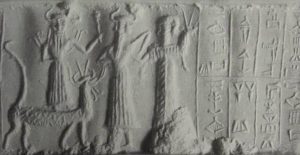 (Marduk, son Nabu, & Babylonian king with dinner offering)
(Marduk, son Nabu, & Babylonian king with dinner offering)
At that time, I gave reverent attention to god Marduk, the god who creates wisdom,
whose word is supreme among the lgīgū gods,
whose lordship is the most outstanding among the Anunnakū (Anunnaki) gods.
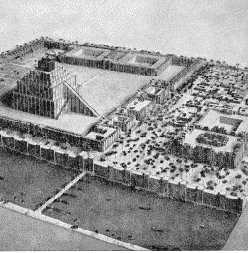 (Esagil, Marduk’s ziggurat residence in Babylon)
(Esagil, Marduk’s ziggurat residence in Babylon)
(As for) the enclosure wall of Esagil that faces north,
(an area) in which ramku- (and) kiništu-priests (usually mixed-breeds) of Esagil reside,
whose foundations a former king had laid but had not raised its superstructure,
which had become progressively lower due to terracing, its walls became weak,
its construction was no longer very stable, (and) its door-jamb(s) were not secure.
To carry out bursaggu-offerings in a pure manner, to arr[ange] purification rites,
to keep taklīmu-offerings pure for the great lord, the god Marduk,
and to properly administer sattuk[ku]-offerings, so that no omission or negligence occur[s],
I examined (and) inspected its original foundation and (then) I secured its (new) foundations on its original foundations.
I raised its high parts, making (them) as lofty as a mountain.
I secured its door-jamb(s) and set up doors in its gates.
I surrounded (it) with a strong base using bitumen and baked bricks.
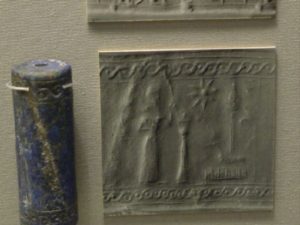 (Marduk with rocket atop his launch pad)
(Marduk with rocket atop his launch pad)
O Marduk, supreme lord, the pre-eminent one, the exalted one, the venerated one, the magnificent one,
the light of the gods — his fathers — joyfully look upon my precious handiwork
and give to me as a gift a life of long days, the attainment of very old age,
a firmly secured throne, and a long-lasting dynasty!
Through your firm command, which cannot be altered, I am Neriglissar,
the king who provides (and) the one who is assiduous towards your shrines for eternity.

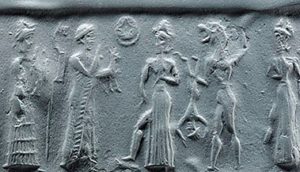
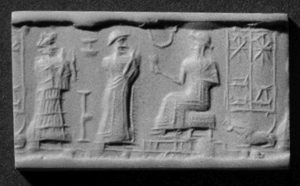
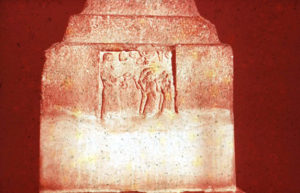
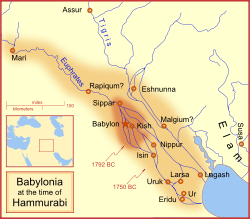
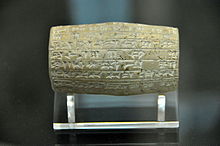
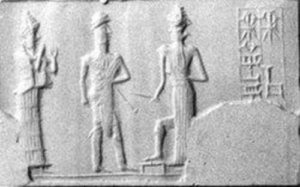
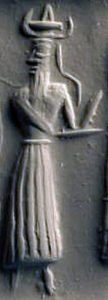
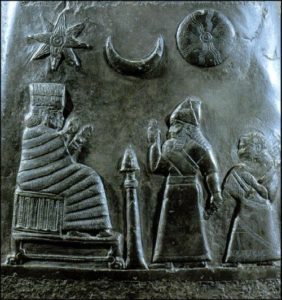
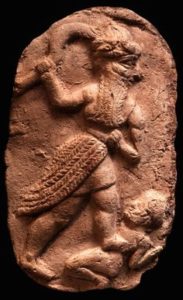
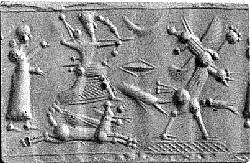

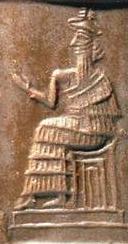
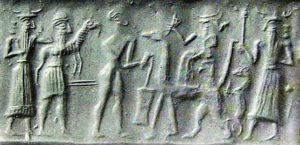
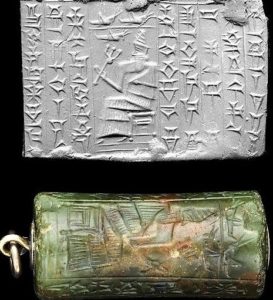
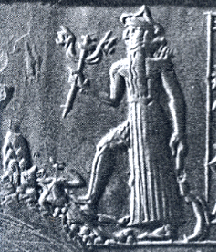
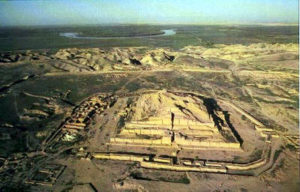
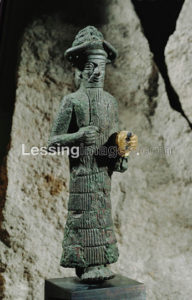

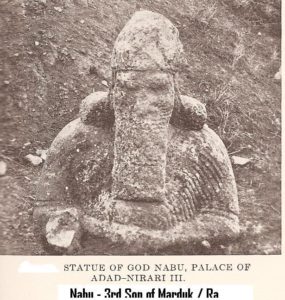
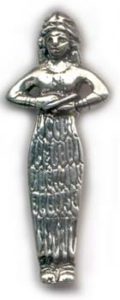

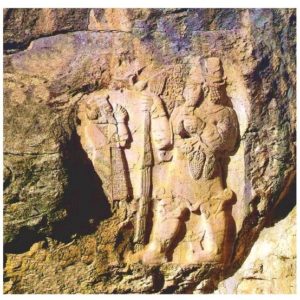

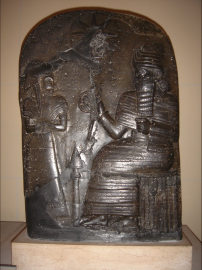
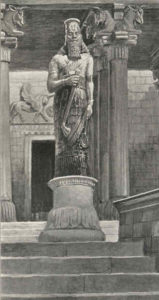
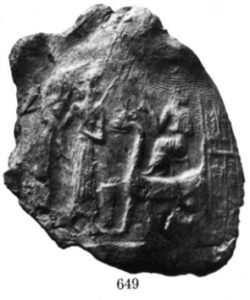
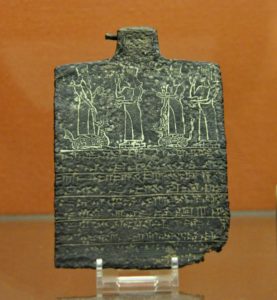
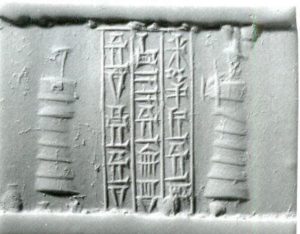
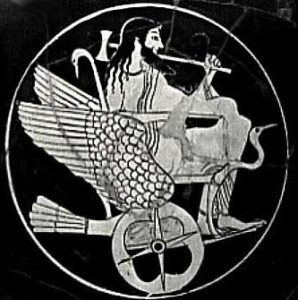
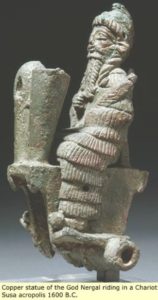
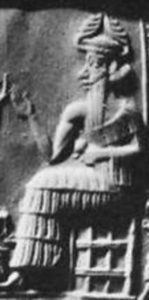
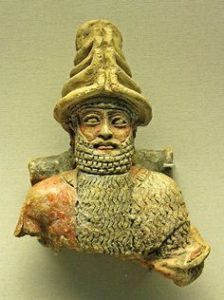
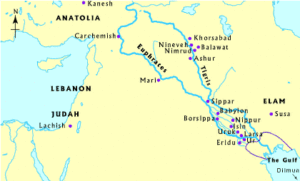
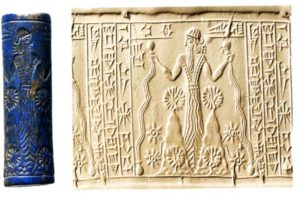
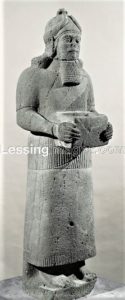
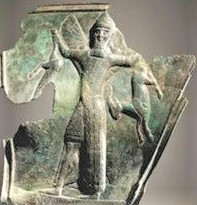
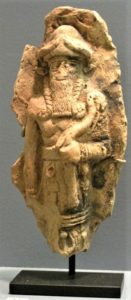
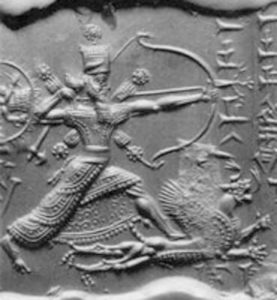

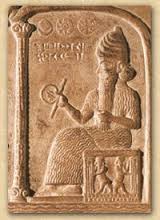
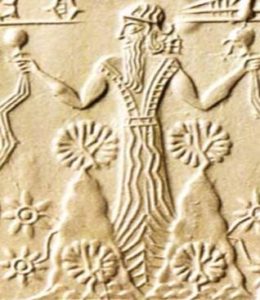
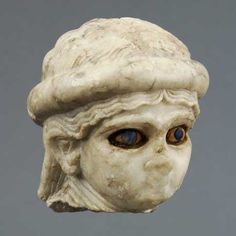
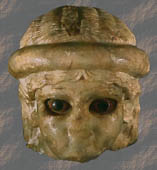 (
(